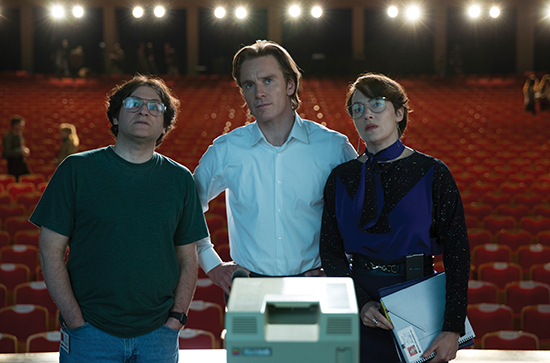The 2015 film Steve Jobs—an intimate portrayal of the man behind the digital revolution—is a formidable presence this awards season, with 13 wins and 87 nominations so far.
But Curtis White, a novelist and social critic, writes in the Spring 2016 issue of Tricycle that the film is a “soap opera” with not much plot to speak of beyond Jobs’ career.
Even worse, White writes, is that the “Apple mythology emerges unscathed”—a “consolation” to Apple fan-consumers and Silicon Valley.
“The claim that it [Apple] is informed by Buddhist values attracts a lot more skepticism than it did in the 1980s,” White writes. “Now it seems more credible to say that Apple was merely the first manufacturer to use Buddhism to brand its products. These days, Buddha branding of all sorts of things has created the oxymoron of a Buddhist consumerism. In the eyes of many, Buddhism is a religion for the affluent. There is today a vast soup of Buddha-branded commodities and programs that have co-opted an otherwise antagonistic discourse, just as the 1960s counterculture was long ago co-opted by Madison Avenue in what Thomas Frank called the great “conquest of cool.”
White’s full review of Steve Jobs and San Francisco 2.0 is available online
Read more from Curtis White:
Thank you for subscribing to Tricycle! As a nonprofit, we depend on readers like you to keep Buddhist teachings and practices widely available.
